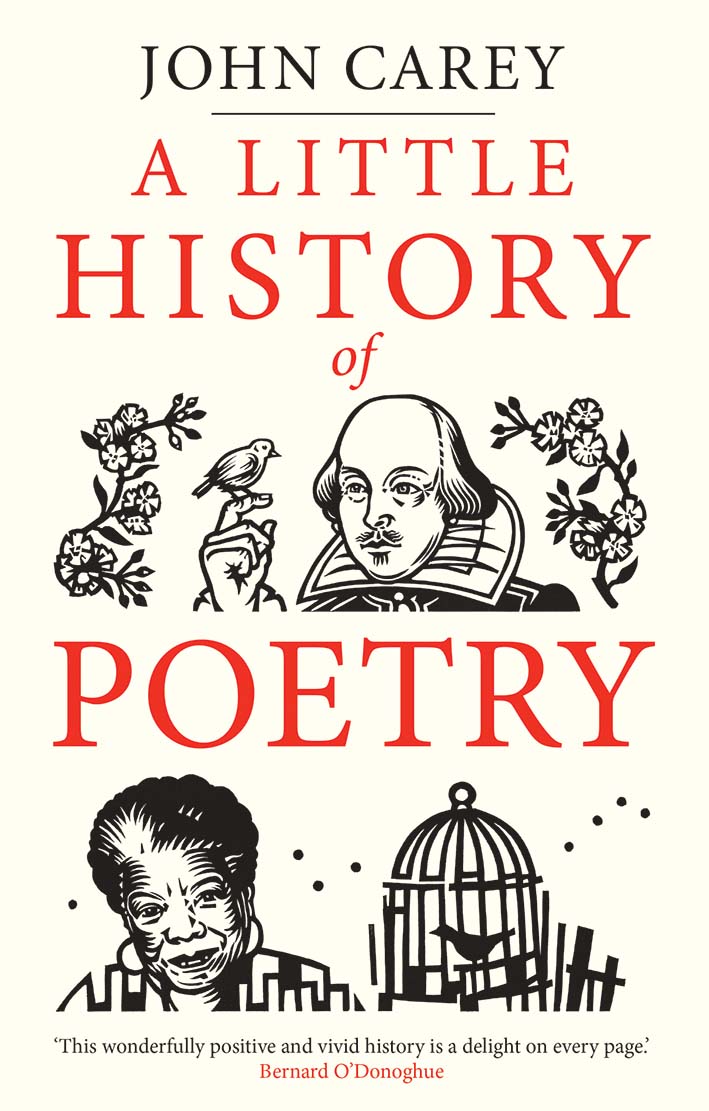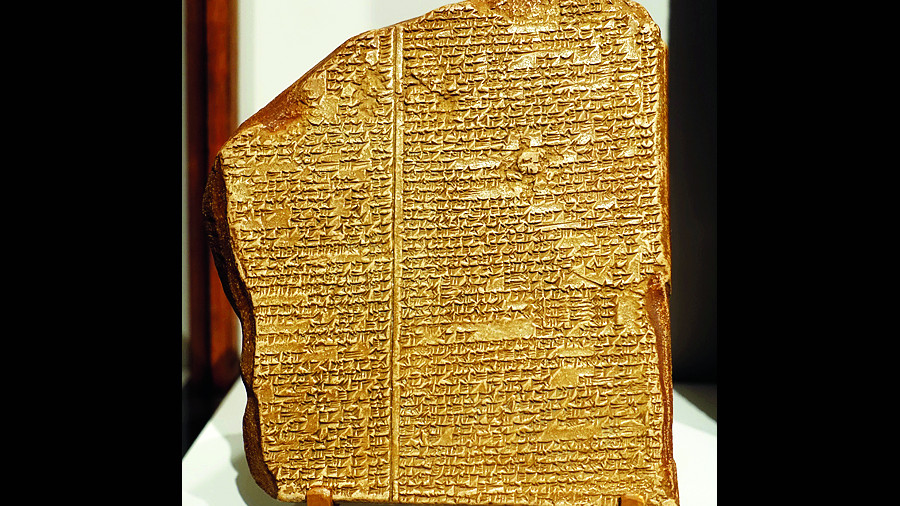Book: A Little History of Poetry
Author: John Carey,
Publisher: Yale
Price: $25
The inaugural title of the “Little Histories” series published by Yale University Press was the phenomenal bestseller, A Little History of the World by Ernst Gombrich, originally composed in 1935 in German, but not translated into English until 2005, some years after the author’s death. Apparently, Gombrich had baulked at having his book translated into English, for he thought the English insular, and not quite ready for his wide-ranging and deliberately international outlook; by the time he agreed to translate his work into English, he was approaching 90, and died before he could complete the task — the text, as published, was completed by Gombrich’s assistant, Caroline Mustill, and his granddaughter, Leonie Gombrich. A Little History of Poetry by the distinguished and iconoclastic emeritus professor of English at Oxford University, John Carey, is the latest in the series and remains true to Gombrich’s spirit by providing a magisterial survey of poetry from The Epic of Gilgamesh (roughly four thousand years old) to our own times (the five poets discussed in the last chapter, “Poets Who Cross Boundaries” are Seamus Heaney (1939-2013), Derek Walcott (1930-2017), Maya Angelou (1928-2014), Mary Oliver (1935-2019), and Les Murray (1938-2019) — of whom three were born after Carey).
Gombrich wrote his “little history” for the daughter of friends, deliberately choosing to avoid tedious footnotes, jargon, and all the assorted paraphernalia of academic writing. When asked to write A Little History of Poetry, Carey was told to “keep teenage readers in mind, and that suited [him] fine. It meant [he] could leave out any boring theory and technical terms, and put in plenty of anecdotes to bring the poets to life.” This A Little History of Poetry succeeds in doing magnificently. The opening lines of the first chapter, titled “Gods, Heroes and Monsters”, offer perhaps the most succinct description of poetry one can come up with, and summarizes both the scope and the limitations of the book. “What is poetry? Poetry relates to language as music relates to noise. It is language made special, so that it will be remembered and valued. It does not always work, of course. Over the centuries countless thousands of poems have been forgotten. This is a book about some that have not.” It then goes on to talk about the oldest surviving poetic work, The Epic of Gilgamesh, and the subsequent 39 chapters take the reader through four millennia of poetic creation, from the Greeks and Romans through the Anglo-Saxons and the “Continental Masters of the Middle Ages” (chapter 5, which has Dante, Daniel, Petrarch, and Villon) to the Renaissance greats all the way to the Romantics, the Russians (Pushkin, Lermontov; chapter 21), and then sweeps on through to our own times and lives. This is, necessarily perhaps, a Eurocentric vision of poetry (Homer and Virgil are present but the Ramayana, and the Mahabharata aren’t; and though Chinese and Japanese poetry are discussed, such discussion is in the context of the Western “discovery” of Asian poetry; chapter 31, “West Meets East”), but Carey doesn’t pretend it to be otherwise. Carey also gets bits about Rabindranath’s English Gitanjali wrong (in chapter 39, “Poets in Politics”, where Tagore is one of 14 poets Carey discusses through the prism of their political engagement), but it is perhaps too much to expect an English professor of English literature to know everything about everything poetical in every language.

A Little History of Poetry Author name by John Carey, Yale, $25 Amazon
In his bestselling autobiography, The Unexpected Professor: An Oxford Life in Books (2014), Carey invariably chose to illustrate what he found most appealing (or repulsive) about a book through quotation — letting the words of the original text speak for themselves rather than providing an academic gloss — and he uses that technique to excellent measure here, too. The chapter on John Donne (the 10th, “Copernicus in Poetry” — one of only four devoted to a single poet), for example, has copious quotations to justify Carey’s contention that Donne is not only rightly “celebrated as the greatest English love poet”, but should also be seen as “a thinker”, “hopelessly changeable” and argumentative. The poet’s argumentativeness and tendency towards self-doubt are seen as symptoms of the age — “In Donne’s day many people worried whether they were damned (it was their equivalent of our searching the internet to see what our symptoms mean we are suffering from).” — before being linked to Donne’s particular fear of damnation due to his conversion to Protestantism. This ability to link complex ideas from dead centuries to our own time through the use of a telling simile, coupled with just the right selection of lines from a poet, is found in abundant measure and provide one of the greatest pleasures of this slim volume.
In the page “About Me” on his official website, Carey writes, “My Wikipedia entry says that I am known for my anti-elitist tone and iconoclastic views on high culture. My own way of putting it would be that I write to stimulate and involve the general reader. To write exclusively for a learned or academic readership seems to me hostile to the spread of knowledge, and a bad thing for the survival of reading.” A Little History of Poetry is the work of an individual who has spent decades reading, loving, and trying to understand literature in all its multifariousness — its highs as well as its lows, its failures no less than its glorious successes — and then trying to communicate this delight in the (mostly written) word to others. This is not a book meant for the scholar or specialist, although both will benefit from reading it. Despite its omissions and commissions, A Little History of Poetry makes for a delightful read. Forthe interested lay reader, it should revivify the joy that perhaps only poetry can most truly convey — a joy both physical and intellectual, delighting as much in sound as in sense — and inspire her to dive back to the classics as well as delve deeper into newer poetic territory.











